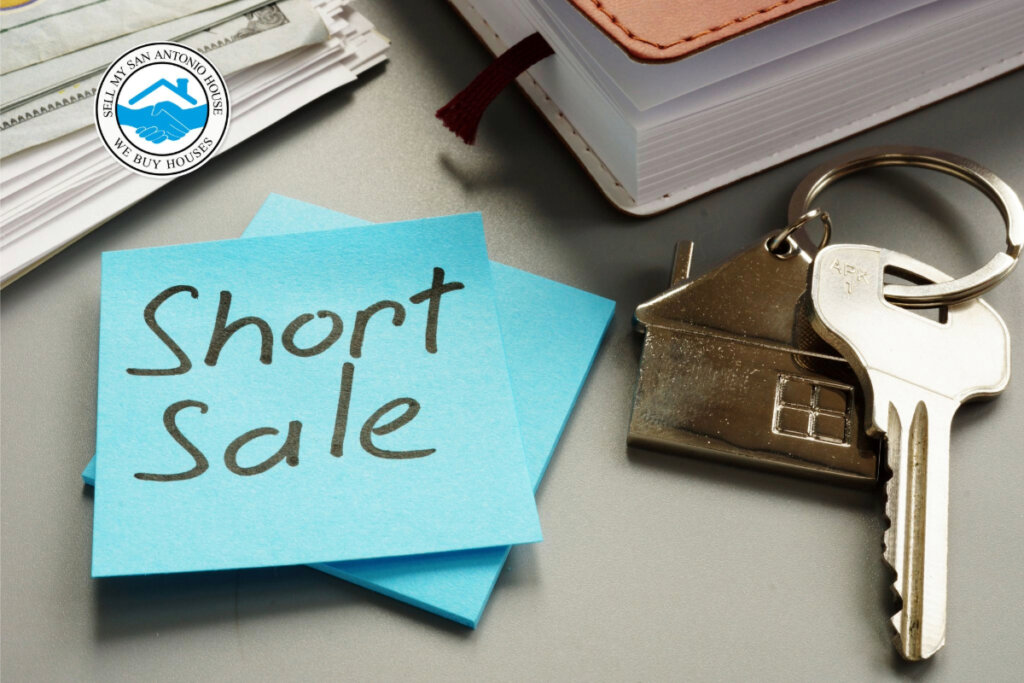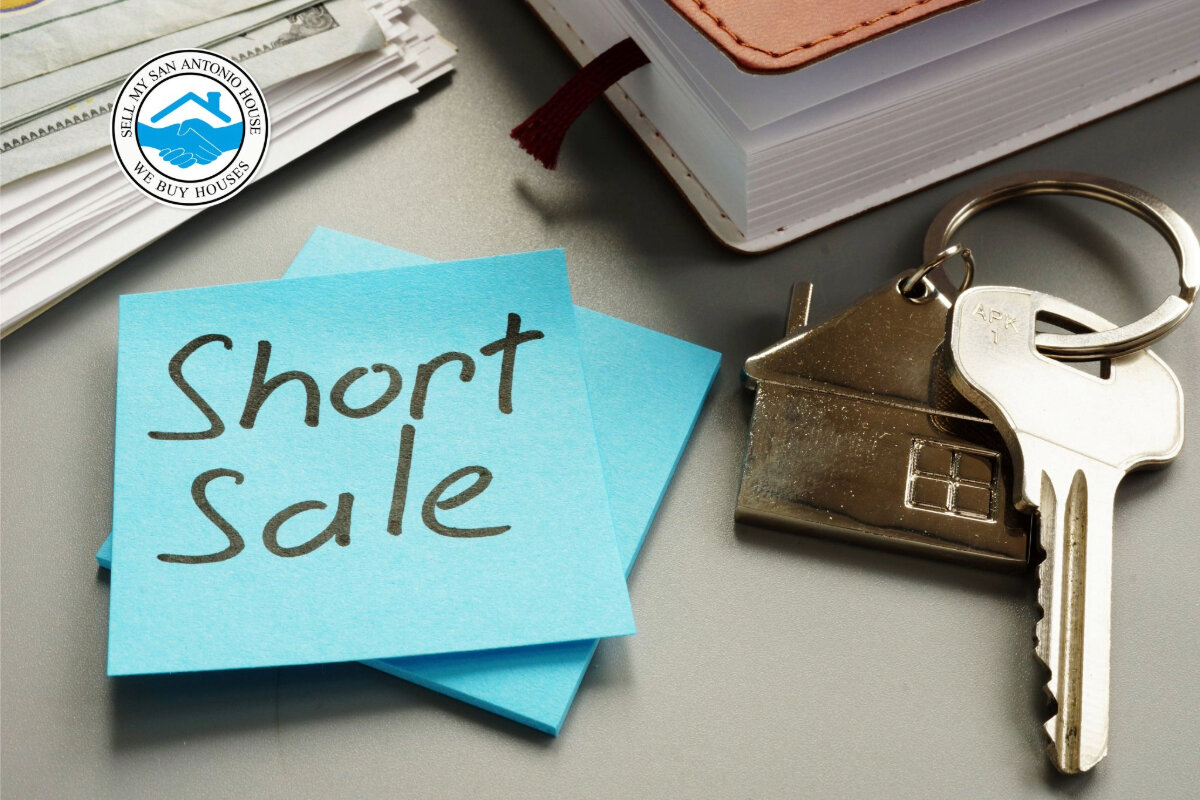
Whether you’re a buyer or a borrower/seller, a short sale, and foreclosure each present different advantages and difficulties.
What Is A Foreclosure In San Antonio, Texas?
In simple terms… “A foreclosed home is one in which the owner is unable to make his mortgage loan payments and the bank repossessed the home” (source). If you stop making your house payments… your lender has the right to foreclose on your property so they can attempt to recoup their money that was lent to you.
A home is typically foreclosed on when a borrower fails to make mortgage payments. The lending institution assumes ownership and possession of the property, evicting the borrower. These properties are then sold at auction or more traditional means utilizing the service of real estate agents. A foreclosure can damage the credit rating of a borrower, and make it very difficult to obtain a mortgage for many years.
Depending on the state that you live in… a foreclosure can work in different ways. Check out the foreclosure process information over here at the HUD Government website.
What Is A Short Sale?
A short sale happens when a homeowner sells their property for less than what’s still owed on the mortgage, with the lender’s approval. While the homeowner still technically owns the home during this process, the sale price won’t cover the full debt. The remaining amount, known as a deficiency, may or may not need to be repaid, depending on what’s agreed upon with the lender.
Short sales are often seen as a way for both borrowers and lenders to avoid foreclosure. However, the process can be complicated and slow, as it requires approval from everyone who has a financial interest in the property. If even one lender disagrees, the deal might not go through.
It’s worth noting that the term “short” in a short sale refers to the financial shortfall, not the time it takes to complete the sale. In fact, short sales often take longer to finalize than traditional home sales because of the extra layers of lender negotiations and the need for all parties to agree.
What to Expect During a Short Sale
For a short sale to move forward, a few key conditions need to be met:
- Qualified Seller: The homeowner must show financial hardship and qualify for a short sale.
- Qualified Buyer: The buyer must be unrelated to the seller (an arm’s length transaction) and have secured financing.
- Reasonable Offer: The buyer’s offer should be close to the property’s fair market value.
- Lender Agreement: All lenders and lienholders must agree to the sale terms.
Here’s a general overview of how the process usually goes:
- The homeowner confirms with the lender that they qualify for a short sale, providing detailed financial information and a hardship letter.
- The lender orders an appraisal to determine the property’s fair market value and suggests a listing price.
- The homeowner’s real estate agent lists the property for sale. Most lenders require professional representation, even if the seller finds a buyer directly.
- Offers are submitted, and the highest complete offer is presented to the lender, along with all necessary documentation.
- The lender either approves the offer or negotiates further.
- Once an agreement is reached, the sale moves forward under the lender’s terms, and the seller is released from some or all mortgage obligations.
Pros and Cons of Short Sales

For the Lender:
- Pros:
- Avoids the time and cost of foreclosure.
- Saves the lender from having to sell the property themselves.
- Improves the lender’s image as being supportive of borrowers in financial trouble.
- Cons:
- Might recover less than the full mortgage amount.
- Possible delays due to incomplete paperwork or inexperienced agents.
For the Seller:
- Pros:
- Prevents foreclosure and further damage to credit.
- Could be eligible for financing a new home sooner than after a foreclosure.
- May be able to stay in the home until the sale is finalized.
- Sometimes relocation assistance or closing costs are covered by the lender.
- Cons:
- Loss of the home and any equity built up.
- Might still be responsible for the remaining mortgage balance through a deficiency judgment.
- Credit score will still take a hit, and future lenders might treat the short sale similarly to a foreclosure.
Short Sale vs Foreclosure – Your Options
While both options can have ramifications, a short sale often has less of an impact on the borrower’s creditworthiness. A foreclosure could impact a borrower’s credit score by 300 or more points, where a short sale may only dent the credit score by 100 points.
Borrowers who are foreclosed on are often ineligible to purchase another home for 5-7 years with a traditional mortgage, where under certain circumstances, a short sale borrower can purchase immediately.
As many Americans struggle with an economy that has yet to completely recover from the 2008 crash, folks are having a hard time making monthly mortgage payments. Choosing between being foreclosed and initiating a short sale (or a 3rd option… selling your San Antonio house fast )is an easy choice for a borrower having troubles paying their mortgage on time.
Sometimes, lenders are willing to work with borrowers to complete a short sale, to avoid the fees and time-consuming process of conducting a foreclosure.
| Aspect | Short Sale | Foreclosure |
| Initiation | Voluntary action by the homeowner; requires lender approval. | Involuntary; initiated by the lender through legal action. |
| Approval Process | Requires documentation and lender approval before proceeding. | Governed by state laws; lenders must follow legal procedures. |
| Homeowner’s Responsability | Homeowners may still be responsible for deficiencies. | The homeowner loses ownership; and may still owe the remaining mortgage balance. |
| Impact on Credit Score | Decreases credit score by 100 – 150 points. | Severe impact; typically decreases credit score by 300 + points. |
| Property Control | The homeowner retains control until a sale is completed. | The lender takes control of the property and sells it. |
| Time to Complete | Longer process due to the need for lender approval and negotiations. | Generally faster, especially if the home is auctioned off. |
| Deficiency Judgment | The lender may pursue a deficiency judgment to collect the remaining balance | Lenders may pursue a deficiency judgment, depending on state laws. |
| Impact on Homeownership | May allow for purchasing another home sooner than a foreclosure | Typically restrict homeownership for 5 – 7 years. |
When facing financial difficulties with your mortgage, it’s crucial to understand the difference between a short sale and a foreclosure, as each option has distinct consequences for homeowners in San Antonio.
A short sale is a voluntary process initiated by the homeowner but requires the lender’s approval. The homeowner must demonstrate a legitimate reason, such as job loss or medical issues, to justify the short sale. This process can take time, as all parties with an interest in the property must agree to the sale. While a short sale can negatively impact your credit score by 100-150 points, it is generally less damaging than a foreclosure and might allow you to purchase another home sooner.

In contrast, a foreclosure is involuntary and initiated by the lender when the homeowner fails to make mortgage payments. The lender takes legal action to seize and sell the property, often resulting in a significant hit to the homeowner’s credit score—up to 300 points or more. The foreclosure process can be quicker, particularly if the property is sold at auction, but it also means the homeowner loses control of the property and may still owe the remaining mortgage balance.
Understanding these differences can help you make an informed decision and potentially minimize the negative impact on your credit and future homeownership opportunities. If you are struggling with mortgage payments, consider discussing your options with your lender and exploring the possibility of a short sale to avoid the severe consequences of foreclosure.
Our suggestion is always this.
- Talk with your lender and discuss ways that they can work with you on your loan. We offer this service where we can help guide you in the right direction if you run into issues with your lender… just reach out to us on our Contact page and we’ll discuss your situation.
- Attempt a short sale or other programs your lender may have that forgives part of your loan, creates a new / more affordable monthly payment so you can get back on your feet, etc.
- If the bank isn’t willing to work with you very much… your best option may be to sell your house. Work with a local real estate house buyer service like Sell My San Antonio House to sell your house fast for an all-cash offer. If you’re interested we can look at your situation and make you a fair offer on your house within 24 hours. Just fill out the form on our website over here >>
- Foreclosure. Last resort is to let the house fall into foreclosure. This is the worst possible scenario. It’ll harm your credit and you could still be left with money owed to the bank even after the foreclosure is finished.
If you’re facing the tough decision between a short sale and foreclosure, we’re here to help. Don’t let the situation spiral out of control—reach out to us at Sell My San Antonio House. We can guide you through your options, offer a fair all-cash offer on your home, and help you avoid the long-lasting impact of foreclosure. Contact us today by filling out the form on our website or giving us a call at (210) 201-6644. Let’s find the best solution for you and get you back on track.
Have a pending foreclosure? We’d like to make you a fair all-cash offer on your house.

